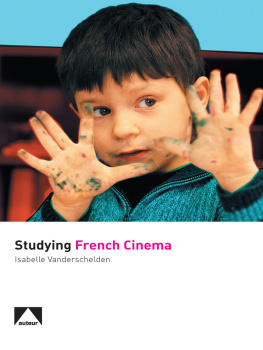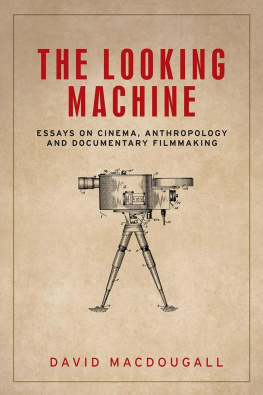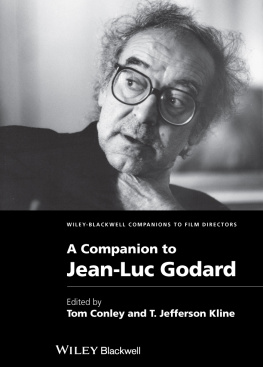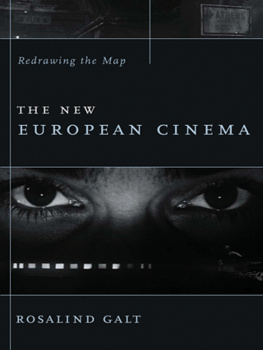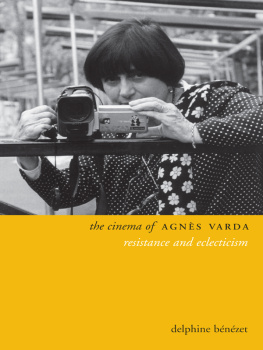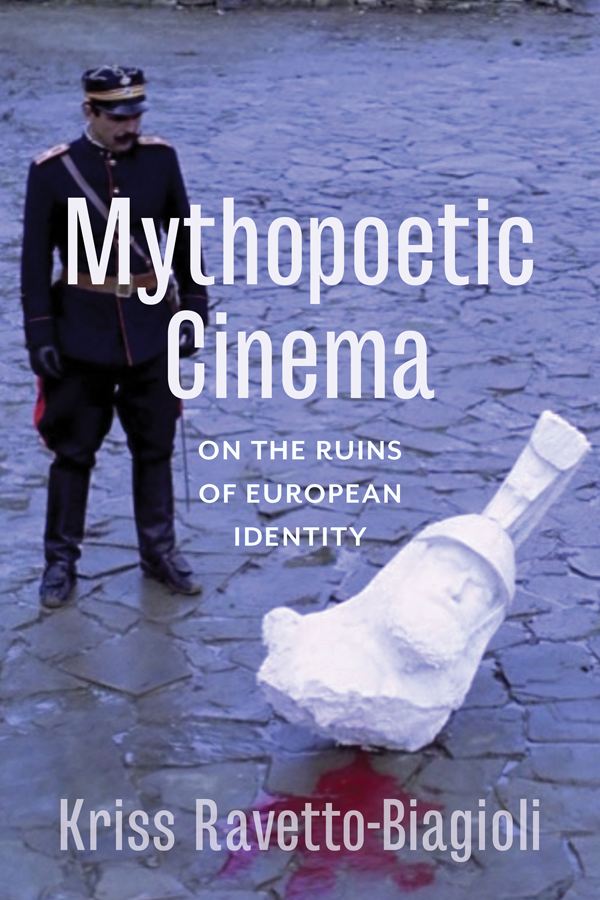Contents
Guide
Pagebreaks of the print version
Mythopoetic Cinema
Mythopoetic Cinema

ON THE RUINS OF EUROPEAN IDENTITY

Kriss Ravetto-Biagioli
COLUMBIA UNIVERSITY PRESS
NEW YORK

Columbia University Press
Publishers Since 1893
New York Chichester, West Sussex
cup.columbia.edu
Excerpts by George Seferis from George Seferis: Collected Poems , trans. and ed. Edmund Keeley and Philip Sherrard 1981 Princeton University Press, republished with permission of Princeton University Press. Permission conveyed through the Copyright Clearance Center Inc.
Copyright 2017 Columbia University Press
All rights reserved
E-ISBN 978-0-231-54410-8
ISBN 978-0-231-18218-8 (cloth : alk. paper)
ISBN 978-0-231-18219-5 (paperback : alk. paper)
Cataloging-in-Publication Data is on file at the Library of Congress.
A Columbia University Press E-book.
CUP would be pleased to hear about your reading experience with this e-book at .
Cover image : Theo Angelopoulos.
Image provided courtesy of the Theo Angelopoulos Heirs Association.
Za moju majku (Helene), e per i miei Biagioli (Mario, Gabriel, and Luka)

CONTENTS
T his book has been in the making for such a long time that I hope I can thank all of the many wonderful people whose conversations, comments, advice, generosity, and criticism have contributed to making it. I would like to begin by acknowledging the amazing artists and filmmakers who inspired this work: Aleksandr Sokurov, Theo Angelopoulos (who, tragically, passed away as I was completing my chapter on his work), Marina Abramovi, and Jean-Luc Godard. Their work stands out for its intellectual rigor, perspicacity, and unique aesthetic acuity.
The book would not exist without the encouragement and tireless effort of Mario Biagioli and Beatrice Dumin, who have read, edited, commented, and critiqued this project with both care and serious critical engagement. Throughout the many stages of this project, they have challenged me to become a better thinker and helped me become a better writer and researcher. I would like to acknowledge my most thought-provoking teacher, Sande Cohen, who has become one of my dearest philosophical friends. His guidance and insights are deeply embedded in this project. Ral Ruizs courage to make a real cinema of poetry and to write such deep intellectual works of experimentation has been both a model and an inspiration. Wherever you are, I thank you, my friend. I also wish to express my deepest gratitude for the intellectual generosity and enduring friendship of Duan Bjeli, Martine Beugnet, Gil Anidjar, Tom Conley, Randy Starn, Maria Koundoura, Stathis Gourgouris, Alberto Moreiras, Teresa Vilaros, Stefania Pandolfo, Sam Weber, James Leach, Randy Rutsky, Michael Herzfeld, Tarek Elhaik, Nikolaj Lubecker, John Orr, Olga Taxidou, Jane Sillars, Giuliana Bruno, David James, Chris Finsk, Toma Longinovi, Tatiana Flessas, Alain Pottage, Jeff Geiger, Edward Campbell, Robert Dulgarian, Eric Smoodin, and Sunaina Mairaall of whom have read chapters of the book and provided me with extensive feedback, critical insight, and motivation. They have prompted me to reflect more carefully about what would constitute an ethical response to identity politics, and they have challenged me in unexpected and, I believe, extremely productive ways. Thank you.
The many conversations, discussions, and debates with, and guidance from, Jelena olak, Zora olak, Ara Mgrdichian, Sinia Spaji, Dimitri Kotsaris, Carol Ravetto, Melinda Kapor, Marina Abramovi, Maria Todorova, Larry Wolff, Dina Iordinova, Aniko Imre, Nick Nesbitt, Patricia Pisters, Laura Marks, Laura Mulvey, David Rodowick, Simon Biggs, Angela Dimitrakaki, Aleksandar Todorovi, Dubravka Ugrei, Svetlana Boym, Lucien Taylor, Vincent Lepany, Vojislav Stanovi, Evangelos Makrygiannakis, Alexandra Smith, Dan Yacavone, Ana Rogers, Griselda Pollack, Tom Levin, Brigitte Doherty, Eduardo Cadava, Elena del Rio, Evi Lincoln, Teshome Gabriel, Peter Wollen, Marina Goldovskaya, Colin Milburn, Kris Fallon, Joe Dumit, Gerhard Richter, Blake Stimson, Jaimey Fisher, Caren Kaplen, Emelie Mahdavian, John Zibell, and Ksenia Federova have helped me recognize the urgency of this project and apprehend the complex network of perspectives, political sentiments, and historical understanding that are often contradictory, open ended, and incomplete. They have all persuaded me to think about the limitations of my own philosophical perspectives. I am forever grateful for their input.
I am indebted to Joaquin Muoz and Svjetlana Tepavcevi at the International Monitor Institute, for making all the footage and film in the archives available to me for viewing and research, and Jelena olak, whose own work with B92 and various resistance groups helped me to understand the poltical landscape. I also wish to thank Dragan Miloevi for his insight and detailed knowledge of events; Miroljub Vukovi at the Yugoslav Film Institute for making all of the films in the archive I needed to see available to watch (I am grateful for his generosity and guidance but also indebted to him for sharing his breadth of knowledge); Radoslav Zelenovi for his intellectual guidance; Slobodan Vuki for his help locating and making available obscure and non-distributed films; and Theo Angelopouloss production company for making their archival material available to me.
I would like to thank Philip Leventhal and my anonymous readers at Columbia University Press who helped me rethink what is at stake in the current political crisis of Europe, and to think more critically about how we represent such a crisis. I would also like to thank copyeditor Glenn Perkins.
My sincere thanks to Luka and Gabriel who have had to endure traveling with me through the Balkans, Russia, and Eastern Europe, with many visits to museums, galleries, film and art festivals, airports, lectures and even off-the-grid locations. Thanks also to Melinda and Livio for driving me through Yugoslavia and ex-Yugoslavia. Your companionship has been invaluable.
Finally, I would like to acknowledge the love and support of Mario Biagioli, Luka Biagioli, Gabriel Biagioli Salzer, Helene Ravetto, Melinda Kapor, Livio Diato, and the Mari family. Without their support this book would not have been possible.
The ancient Greeks more closely resemble a dream than the waking world of a scientifically disenchanted thinker. When every tree can suddenly speak as a nymph, when a god in the shape of a bull can drag away maidens then as a dream anything is possible at each moment, and all of nature swarms around man as if it were nothing but a masquerade of the gods.
Friedrich Nietzsche, Truth and Lie
O ver time the maps of Europe have borne their own marks of anxietypower shifts imprinted in expanding and contracting lines, metamorphoses in contour and border, sudden appearances and erasures of named space. Strangely, the vicissitudes of the map of Europe have not affected the figure of Europa: she persists, appearing alongside ideas much less tangible and out of reach than what the lines of ruined inscriptions represent. The figure morphs but endures, mixing new features with old time and time again, emerging out of the manifold stories of Greek mythology. In some narratives Europa is one of Zeuss many lovers; in others, she is one of his many rape victims, abducted from Tyro and transported west across the Mediterranean to Crete. The history of the modern appellation is even murkier. ).


